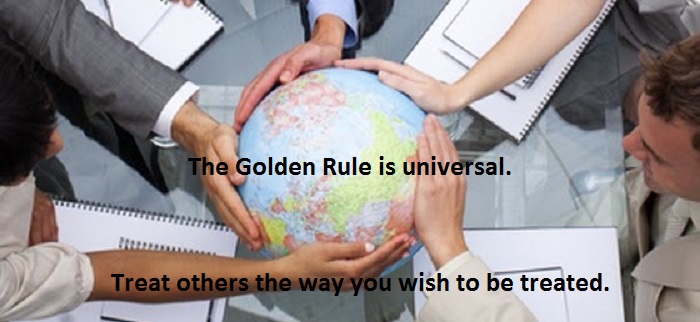Some truths, some principles, are so universal across time and cultures that reflecting upon them reminds us of humanity’s essential unity. When we focus on the common threads that bind us, we are reminded that they are much greater than the things that divide us. Known at times as the “Global Ethic” and better known in the Western world as the “Golden Rule”, “The Rule of Reciprocity” runs deep in our shared traditions.
Christianity: “Do unto others as you would have them do unto you.”
Judaism: “What you hate, do not do to anyone.”
Islam: “No one of you is a believer until he loves for his brother what he loves for himself.”
Hinduism: “Do nothing to thy neighbor which thou wouldst not have him do to thee.”
Buddhism: “Hurt not others with that which pains thyself.”
Sikhism: “Treat others as you would be treated yourself.”
Confucianism: “What you do not want done to yourself, do not do to others.”
Aristotle: “We should behave to our friends as we wish our friends to behave to us.”
Plato: “May I do to others as I would that they should do unto me.”
Closing Quotes:
“Do not do to your neighbor what you would take ill from him.” – Pittacus (c. 640–568 BC)
“Avoid doing what you would blame others for doing.” – Thales (c. 624 BC – c. 546 BC)
“What you do not want to happen to you, do not do it yourself either.” – Sextus the Pythagorean, 3rd century AD
“Do not do to others what would anger you if done to you by others.” – Isocrates (436–338 BC)
The 1st 9 examples drawn from “The SPEED of Trust” by Stephen M.R. Covey & Rebecca R. Merrill, others from Wikipedia


